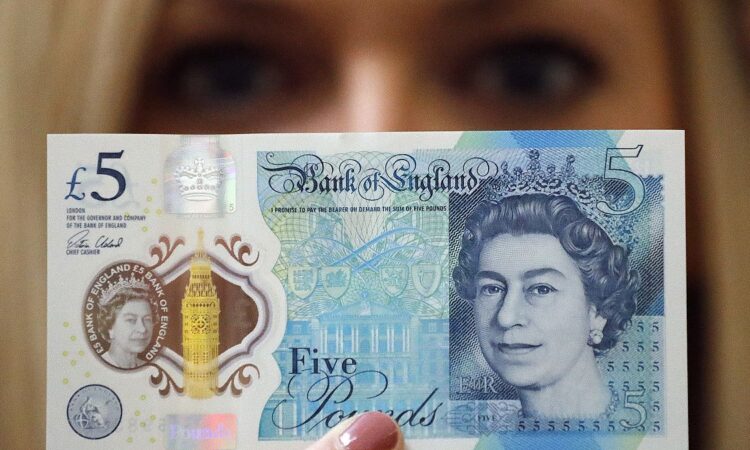
It dipped as low as $1.0349 per US dollar early Monday but then rebounded to $1.07.
The British pound fell to an all-time low against the US dollar early Monday after Treasury chief Kwasi Kwarteng pledged a sweeping package of tax cuts, fuelling concerns about the government’s economic policy as the United Kingdom teeters toward recession.
It dipped as low as $1.0349 early on Monday but then rebounded to $1.07.
The UK government’s new tax-cut plan has sparked concerns that increased public borrowing will worsen the nation’s cost-of-living crisis.
This comes as the British currency plunged more than 3% on Friday, trading at levels last seen in the early 1970s.
Treasury chief Kwasi Kwarteng announced sweeping tax cuts last week that he said would boost economic growth and generate increased revenue without introducing corresponding spending reductions.
He also said previously announced plans to cap soaring energy bills for homes and businesses would be financed through borrowing.
Kwarteng offered few details on the costs of the programme or its impact on the government’s own targets for reducing deficits and borrowing, but one independent analysis expected it to cost taxpayers €210 billion this fiscal year.
The news triggered the pound’s biggest drop against the U.S. dollar since March 18, 2020, when then-Prime Minister Boris Johnson announced the first nationwide lockdown to control the spread of COVID-19.
The British currency closed at $1.0822 in London on Friday, from $1.1255 on Thursday.
Prime Minister Liz Truss, who took office less than three weeks ago, is racing to combat inflation at a nearly 40-year high of 9.9% and head off a prolonged recession.
Facing a general election in two years, she needs to deliver results quickly.
However, some economists say the recently announced mini-budget is more likely to fuel already high inflation, drive down the pound and drive up the cost of U.K. government borrowing — a potential perfect storm of economic headwinds.
Meanwhile, the recent rise in the U.S. dollar against other currencies is a concern for many countries. It dents profits for U.S. companies with overseas business and puts a financial squeeze on much of the developing world.




